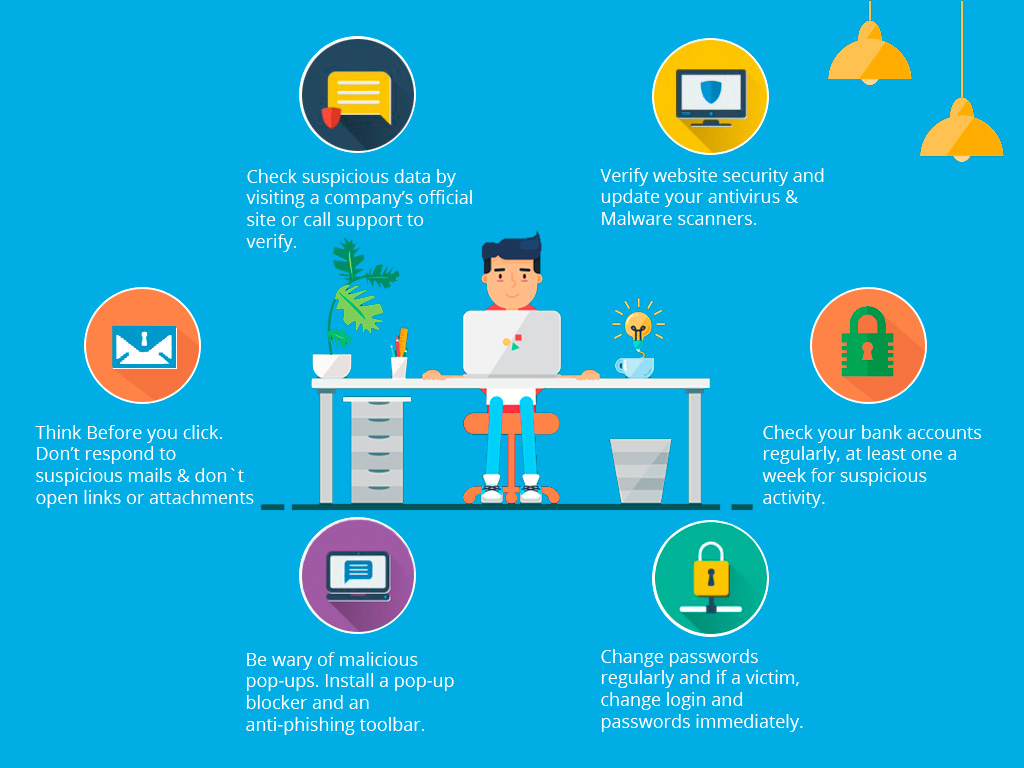The digital age, while bringing immense convenience and connectivity, has also paved the way for a surge in online scams. Cybercriminals are increasingly sophisticated, constantly devising new methods to deceive individuals and organizations. Understanding the latest scams and implementing robust security measures are crucial in safeguarding personal information and finances.
Common Online Scams in 2024
- Phishing Attacks
- How it works: Cybercriminals send deceptive emails, messages, or websites that appear legitimate, tricking individuals into revealing sensitive information such as passwords, credit card numbers, or social security numbers.
- Example: An email that appears to be from your bank, urging you to update your account information due to suspicious activity.
- Tech Support Scams
- How it works: Scammers pose as tech support representatives from reputable companies, claiming your device is infected with malware. They may ask for remote access to your computer or demand payment for unnecessary services.
- Example: A pop-up alert on your computer warning of a virus, instructing you to call a support number.
- Online Shopping Scams
- How it works: Fraudulent online stores offer goods at low prices, luring customers to make purchases. After payment, the products are never delivered, or inferior goods are sent.
- Example: An online store selling electronics at a fraction of the market price, but after purchase, the items never arrive.
- Romance Scams
- How it works: Scammers create fake profiles on dating sites or social media, building romantic relationships with victims to gain their trust and eventually exploit them financially.
- Example: A seemingly genuine individual requests money for a fabricated emergency or travel expenses to meet in person.
- Investment Scams
- How it works: Fraudsters offer enticing investment opportunities with high returns and little risk. These often turn out to be Ponzi schemes or involve fake cryptocurrencies.
- Example: An unsolicited email promoting a new cryptocurrency with promises of high, guaranteed returns.
- Job Scams
- How it works: Scammers send unsolicited job offers via messaging platforms like WhatsApp or Telegram, claiming to be from legitimate recruitment agencies or reputable organizations.
- Example: Victims are asked to perform simple online tasks in exchange for a commission, such as completing surveys or liking social media posts. Initially, the scammer might send a small sum of money to build trust. Eventually, the scammer asks for money or personal and banking details to access higher-paying tasks. Once they receive this information, they disappear.
- Ransomware Attacks
- How it works: Malware encrypts the victim’s data, rendering it inaccessible. The attacker demands a ransom payment in exchange for the decryption key.
- Example: Opening an email attachment that installs ransomware, locking all files on your computer until a ransom is paid.
General Tips to Protect Yourself from Online Scams

- Be Skeptical of Unsolicited Communications
- Always be cautious of unsolicited emails, messages, or calls, especially those requesting personal information or urgent actions. Verify the sender’s authenticity before responding.
- Use Strong, Unique Passwords
- Employ complex passwords and avoid reusing them across multiple sites. Consider using a password manager to keep track of your credentials securely.
- Enable Two-Factor Authentication (2FA)
- Activate 2FA for your online accounts to add an extra layer of security. This typically involves a secondary verification step, such as a code sent to your phone.
- Regularly Update Software and Devices
- Keep your operating system, applications, and antivirus software up to date to protect against the latest threats and vulnerabilities.
- Be Wary of Phishing Attempts
- Check email addresses and URLs for signs of phishing. Avoid clicking on suspicious links or downloading attachments from unknown sources.
- Verify Online Sellers and Websites
- Research online retailers before making a purchase. Look for reviews, ratings, and secure transaction signs, such as “https://” in the URL.
- Educate Yourself and Others
- Stay informed about the latest scams and share knowledge with friends and family. Awareness is a powerful tool in preventing cyber fraud.
- Secure Your Personal Information
- Limit the amount of personal information you share online. Use privacy settings on social media to control who can see your posts and personal details.
- Monitor Financial Statements Regularly
- Frequently review your bank and credit card statements for unauthorized transactions. Report any suspicious activity to your financial institution immediately.
- Backup Your Data
- Regularly backup important data to an external drive or cloud service. This ensures you can recover your information in case of a ransomware attack or other data loss incidents.
The landscape of online scams is constantly evolving, with cybercriminals employing increasingly cunning tactics to exploit unsuspecting individuals. By staying informed about current scams and adopting proactive security measures, you can significantly reduce the risk of falling victim to these schemes. Vigilance, education, and the implementation of robust security practices are essential in protecting your personal information and financial well-being in today’s digital world. Let’s work together to stay one step ahead of scammers and keep them out of work—for good.






